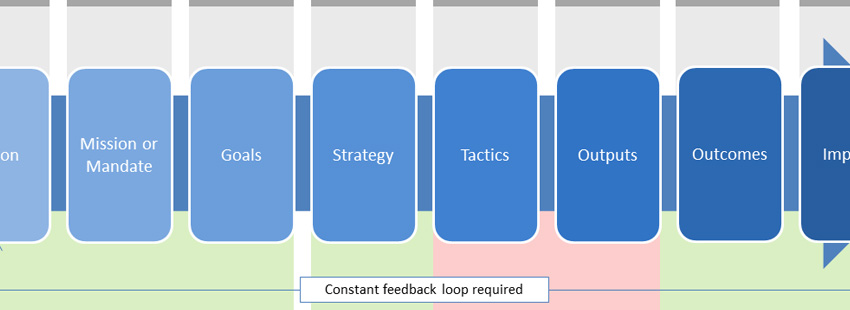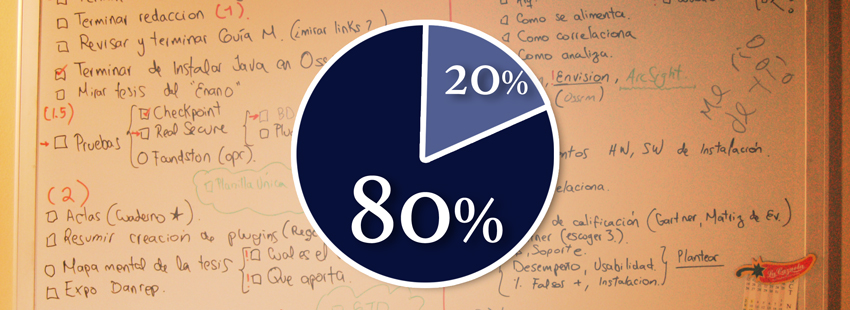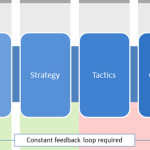Cram a bunch of people with different personalities into a confined space, get their responsibilities to overlap, mix in some emotional baggage and deadlines, and whoop, there it is: conflict.
Read moreWould you rather be mayor of the village or the lumberjack?
by David Folkerson on June 3, 2016 , No comments“If I had eight hours to chop down a tree, I’d spend six hours sharpening my axe.” – Abraham Lincoln
I’ve heard a lot of talk about the value of specialization. The theory goes that, if you want to become successful, you should pick one thing and do it really really well. You only have so much time to invest in yourself, and you have to have a pretty specific pitch if you’re going to capture people’s attention. You want to be sharp and you want to be purpose-built. When it comes time to chop down that tree, you will have the finest edge that anyone has ever seen.
Baloney.
Life (and work) isn’t made up of isolated, perfectly defined cookie-cutter moments. Life is messy. Life is complex. That tree you want to chop down might fall on someone. People might not understand the benefit of it being chopped down in the first place. Have you considered whether now was the right time to chop it down? Is chopping down the tree the best use of your resources considering your other priorities? Who will be documenting the process, writing articles and snapping photos so that you can promote your tree chopping services? Should you live stream it? And why not get yourself a chainsaw since this is the 21st century?
If all you cared about was that axe edge, I’m sure you would do a bang up job cutting down that tree. But you would fail miserably as mayor of the village.
Read moreA visual reminder to help you think strategically
by David Folkerson on October 23, 2015 , No commentsIt’s easy to think of communications as purely a supportive role. We’re not usually the ones charting the course for our organizations. We’re not driving the business. So it’s easy to understand how we can become quite reactive to the work that is requested of us. However, it is incumbent on us to constantly question the “why” of our work, however responsive we are to the “what” and the “how”, in order to be able to provide strategic guidance, and maximum value, to those we are supporting.
Read moreApply the Pareto principle to your to-do list for maximum success
by David Folkerson on July 1, 2015 , No commentsDo you use a to-do list? Good. Does it ever get shorter? If you’re like me – not really. My to-do list is long and it seems to get longer all the time. But I’ll come clean and tell you right now that, as important as productivity is, I’m never going to finish it. I’m not even going to try. Why? Because the effort just isn’t worth it. I look at my to-dos all the time, and every time I look at my list, I consider what my goals are, what the context is around me, and I start to assign priorities to my tasks. Many tasks never get done. They were born as a fleeting thought. Potentially good ideas that came about in relation to something else. The tasks took a little breath, survived long enough to make it onto my list, but things changed, projects moved on, now they’re tagged as “low priority”, and in a few months they’ll probably be deleted. To-dos can only survive in low-priority mode for so long before their sheer existence causes me more annoyance than their eventual potential is worth.
Read more9 tips for the shortest and most productive meetings possible
by David Folkerson on February 28, 2015 , No commentsI have a friend who told me he regularly has to sit through two-hour long weekly team meetings. I didn’t know whether to laugh or cry with him. Such a massive investment in time and money. Put your typical team of 10 into a boardroom for two hours, and that meeting has just cost the company about $1,000 in wages. Keep it up for a year, and the company is down about $50K. And that’s just one team. It is unlikely that this company generates sufficient return from these team pow-wows to merit such frivolousness with employee time. Conducting good meetings is an important skill. Here are some tips for keeping them as short and as productive as possible.
Read more





 Senior communicator | Team leader | Web and social media expert | Strategist.
I love making new professional acquaintances. Reach out if you want to talk communications, marketing, or ultimate frisbee.
Senior communicator | Team leader | Web and social media expert | Strategist.
I love making new professional acquaintances. Reach out if you want to talk communications, marketing, or ultimate frisbee.






Recent Comments